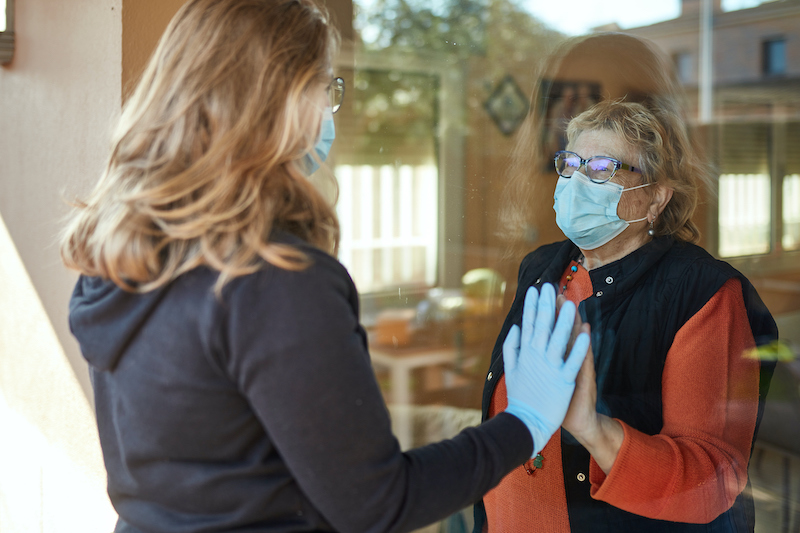
Discover tips that are helping older adults weather the pandemic.
It’s been over half a year since the COVID-19 pandemic began. The restrictions that have been put in place to emphasize safety can start to wear on all of us, and although there is a normal desire to want to “get back to normal,” there is a new concern, however: pandemic fatigue in seniors.
Pandemic fatigue is caused by attempting to manage the many intense emotions we have been enduring, such as anxiousness, fear, loneliness and isolation, and hopelessness. It’s tiring and draining, and may present as:
- Issues with getting adequate sleep and/or eating appropriately
- Problems with focusing
- Retreating from individuals we care about
- Becoming more argumentative or having a “short fuse”
- Feelings of nervousness, edginess, and not enough motivation
- Struggling with racing thoughts
The balance between maintaining the physical health and safety we achieve by self-isolating, and the emotional health we realize through socialization and engaging in meaningful activities, isn’t easy to navigate. We’ve provided some suggestions for overcoming pandemic fatigue in seniors:
- Accept and acknowledge your emotions. A variety of feelings are completely normal in a period of time that feels anything but normal. It can be helpful to name how you’re feeling – even writing it down. Then make an effort to refocus your thinking to approaches to help. For instance, if you are feeling out of control, direct your energy to things that you are able to control.
- Improve your inner dialogue. It is natural to wrestle with numerous negative “what if” scenarios, which bring about heightened anxiety. Try integrating a positive slant to your questions; for instance, in place of thinking, “What if I come down with COVID-19?” tell yourself, “I have been doing everything I can to protect myself and remain safe.”
- Stay connected. While social distancing and staying away from one another has become the new normal, it’s critical to maintain social connections in ways that are safe: phone calls, emailing and chatting on social media, writing letters, and using technology for virtual get-togethers, classes, religious services, etc.
- Turn off the news. It is important to make certain you’re up to date on the latest recommendations, guidelines, and status of the virus; however, it’s also very easy to quickly become inundated with too much information. Attempt to restrict your news watching to no more than one hour each day, and then make sure the source you are getting information from is trustworthy.
- Take good care of yourself. Develop a routine that includes a minimum of 7 hours of sleep per night, thirty minutes of exercise each day, and a balanced and healthy diet. You’ll be aiding both your emotional state as well as your immune system by simply making good lifestyle choices.
Compassionate Nursing Services is always available to partner with you and provide a trusted, dependable in home caregiver. Our home care services are provided in the comfort and safety of home, helping senior loved ones increase emotional, physical, and social wellbeing. Whether the need is for just a few hours every week of respite care that will allow family caregivers to rest and recharge, or as much time as required, up through and including full-time care, contact us online or call us at 314-432-4312 and to learn more about our St. Louis home care services and all of the communities we serve.
